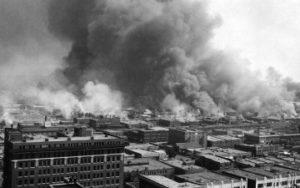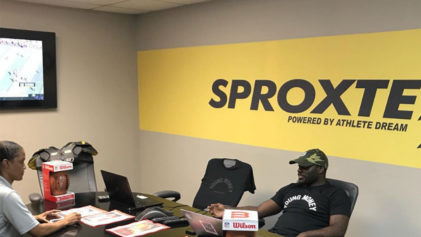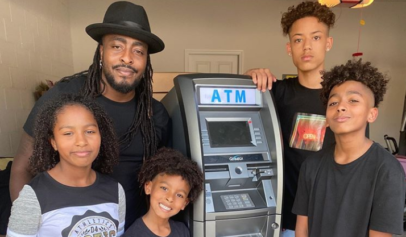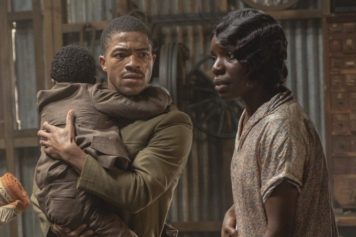
Many theories have been pitched as to why this disconcerting trend continues even today.
Experts have pointed to the discriminatory practices that plague the financial industry and make it difficult for Black entrepreneurs to obtain business loans. Others insist that racial bias simply keeps too many consumers at bay. Others argue the case of a limited network and towering barriers to entry that are uniquely and disproportionately faced by Black business owners.
But a more interesting proposal has suddenly emerged.
Is a fear of Black success driving the failure of some Black businesses?
Tuscaloosa, Alabama, resident and established engineer Ben Baxter took to his social media to make a simple request of his Black followers. Get out there, and make sure you support Black businesses.
After economists predicted that the Black community has more than $1 trillion in spending power, it has become far from unusual to hear people push for the community to make sure they are supporting their very own.
Statistics have long shown that a disproportionate amount of the Black community is still trapped in poverty and find it extremely difficult to make the transition from one socioeconomic class to the next.
Perhaps supporting Black entrepreneurship can help change this?
Baxter fears that the community may never find out because implicit racial bias may have already struck a fear of Black business into the hearts of many.
After urging his followers to support Black businesses, he received tons of online backlash from those who deemed his comments “racist” and insisted that such a discriminatory proposal was unacceptable.
“That is analogous to calling me ‘uppity’ for being in favor of giving additional support to locally-owned restaurants instead of always blindly eating food at corporate chains,” he wrote in an article published by the Alabama-based news source AL.com. “Regardless of the absurdity of these claims one thing is apparent: there are many people in our region and in our state who are uncomfortable with the thought of having too many successful black-owned businesses.”
It’s a theory that may very well apply to states far beyond the borders of Alabama.
Baxter elaborated on the matter, suggesting that a fear of “Black competition” and self-sufficiency in the Black community has left many scoffing at the idea of making a particular effort to support Black-owned businesses.
“Currently, over 90% of America’s 2 million black-owned businesses are sole proprietorships or partnerships with no paid employees,” Baxter claimed. “If black-owned businesses started receiving consumer support, higher revenues would increase profits and increase the number of paid employees. Just imagine how much that could help reduce unemployment rates.”
He went on to analyze those numbers and answer his own question.
He estimated that if each Black-owned business was able to hire and sufficiently pay just one additional Black employee, the Black unemployment rate would plummet and be “virtually eliminated.”
“Unfortunately, mass hysteria would erupt if blacks attain that level of untethered success,” Baxter continued. “Cries of ‘reverse racism’ would be heard all over our state from the zaniest of characters.”
It’s an intriguing theory about the landscape for Black entrepreneurs.
Is the fear of their success yet another seemingly impenetrable wall keeping them segregated from America’s elite?
Is the idea of the Black community no longer being trapped in poverty and actually successfully dominating corporate America a thought that would cause panic and chaos?
Consider the tragedy that befell the Tulsa, Oklahoma, community known as the “Black Wall Street.”
The community was home to a rapidly growing population of successful, financially flourishing Black families. As the community began to show even more promise to spread wealth throughout the Black community, mobs mobilized to tear the city down.
In 1921, more than 300 Black citizens were killed in the race riot that turned out to be the one of the bloodiest and most horrendous acts of terrorism America would ever see.
Roughly 9,000 of these families were left homeless.
In the blink of an eye, a community of families that were once a part of America’s wealthy or upper-middle class population was shoved into the despairs of poverty.
“It was pure envy, and a vow to put progressive, high achieving African Americans in their place that would cause the demise of the Black Mecca many called ‘Little Africa,’ “ Ebony’s Josie Pickens writes of this historic tragedy.
To make matters worse, the destruction of Black Wall Street was not a one-time incident. The same act of terrorism that burned the community to the ground has plagued many others like it.
It’s been proven that a great fear of Black success is not a foreign idea in America and the country has seen just how devastating that fear can be.
So now the question remains, more than 90 years since a white mob destroyed an entire successful, wealthy Black community destined to expand and grow, does that type of fear still linger in the hearts of Americans today?



